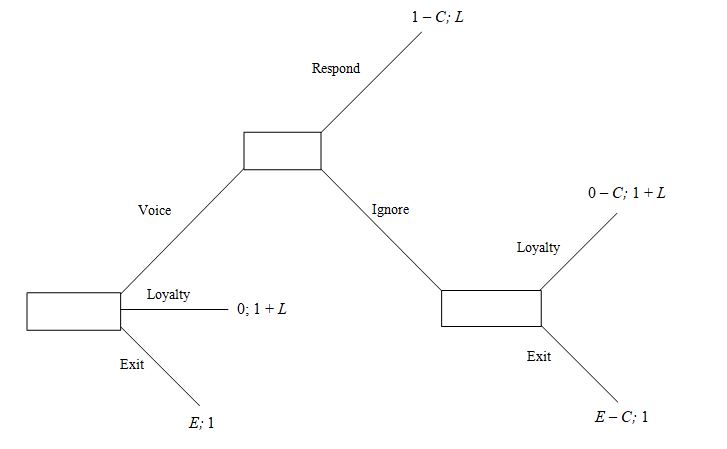What is the expected outcome of the game if you use these payoff values?
Below is the Exit, Voice, and Loyalty game between the state and the citizen.Recall that E is the payoff that the citizen gets when she exits, L is the payoff that the state gets from retaining a loyal citizen, 0 is the payoff that the citizen gets from remaining loyal, and C is the cost that the citizen must pay for using voice.
Let E = 0.5, let L> 1, and let C = 0.75.

A. citizen uses voice, state backs down
B. citizen uses voice, state backs down, citizen exits
C. citizen exits
D. citizen remains loyal
E. citizen uses voice, state backs down
C. citizen exits
You might also like to view...
Poll taxes and literacy tests were all designed to
a. increase voter turnout rates. b. discourage voting by African Americans, Mexican Americans, and poor Whites. c. eliminate voter fraud in local elections. d. encourage two-party competition. e. assure and educated and responsible electorate.
What is a hegemon and what are the expectations of the hegemon in the international systems? To what extent is the United States a hegemon? Is the world better off if there is a hegemon? Should the United States act more like a hegemon?
What will be an ideal response?
In public sector management, the only important consideration is managerial efficiency and effectiveness
a. True b. False
Which of the following has the largest potential to decrease the accuracy of an inference made to a population based on a sample?
a) variance
b) a heterogeneous sample
c) a homogeneous sample
d) sampling error